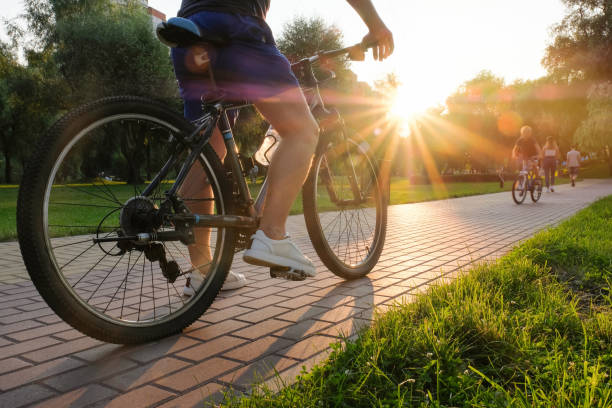There are a number of concerns high school graduates have plaguing their minds when they go off to college for the first time. How am I going to pay off my student loans? Will my classes be difficult? What if I never make any friends? Attending college is a landmark time for young adults and as they juggle classes, extra-curricular activities, work and having an active social life, all that time-crunching can lead to an increase in stress levels, emotional eating habits and consuming the fastest of fast foods. Cue the legend of the Freshman 15 – no, it’s not a hazing ritual – but the inevitable 15 pounds that freshmen seem to universally gain upon their first semester at university.
Health Fitness Revolution compiled the top 10 ways to avoid the Freshman 15 from creeping up on you:
- Don’t Skip Breakfast – Students who eat breakfast usually tend to eat less throughout the day than those who skip breakfast. Some students opt to skip breakfast due to time management concerns while others may actively attempt to avoid gaining weight. The truth is the best way to keep weight off is by not skipping meals. The actual studies are mixed as to whether weight gain occurs as a result of skipping breakfast. Some say there is “merely an association” between obesity and skipping breakfast, others state those who consume breakfast have a more nutritionally balanced diet, while another study further muddied the waters by debunking several eating habit myths. Whether it’s after a good night’s rest or an all-nighter filled with studying or partying, eating a healthy breakfast will awaken your metabolism and provide the energy your brain and muscles need to tackle your busy day.
- Stock Healthy Snacks – Stock up on snacks like trail mix, granola bars, and fresh foods and vegetables to avoid binge eating on unhealthy alternatives like chips and dip, and even keep you fuller longer. Stocking up on healthier snacks will keep you away from fast food and vending machines while also saving you money.
- Limit Alcohol Consumption – Starting college usually means more freedom, which leads to more partying, which naturally leads to more alcohol consumption. While Health Fitness Revolution does not advocate underage drinking, we do understand youth culture and acknowledge its existence. It is important to note that regardless of age, everything is better in moderation. Drinking too much means you’re consuming many empty calories, meaning you are increasing your calorie count but gaining no nutritional value. Alcohol can also lower your blood sugar and trigger hunger, which can lead to increased eating habits.
- Find Workout Buddies – Between classes, studying and trying to have a social life can be really difficult to squeeze in an effective workout. Finding a workout buddy is a great way to stay motivated while having fun together. Even if you decide not to workout together, simply going to the gym together is a great way to keep each other accountable for not missing gym days.
- Cycle to class – The shuttle bus is the fastest way to campus, but not the most proactive activity. Walking is an okay option, but only if you’re not pressed for time. So what then could be the happy medium? Burn extra calories by cycling to class instead of walking or taking the bus. Cycling will get your heart moderately pumping, giving you a mild cardio exercise while efficiently providing you a fun way to soar through campus. Simply imagining the wind flying through your hair should be enough to get you urging to guy a bike.
- Join intramural sports – You don’t have to be a college athlete to play a sport. In fact, intramural sports were created just to promote socialization and athleticism, as well as boost competitiveness. Joining an intramural league will give you the opportunity to compete against others and be part of a team. Many schools have a wide variety of sports to get involved in (Such as Baseball, Football, Softball, Soccer, etc.) and some may also provide some great outdoor programs which plan weekend trips to do things like hiking, kayaking, rock climbing and more.
- Drinking water throughout the day – Staying hydrated is essential for maintaining weight. Consuming water will keep you energized throughout your day and even the slightest bit of dehydration can slow down your metabolism and may even cause headaches and fatigue to set in. Constantly drinking water can also stave off hunger and even help limit food intake. For those who are trying to manage or lose weight, many people like to consume water before a meal to trick their stomach into thinking it’s full before eating a meal. This way you consume less than you normally would, and as high in calories campus cafeterias can be, that may be a smart option to consider. As you travel around campus, be sure to carry a reusable water bottle with you or keep bottles of water stored in your dorm or car to stay hydrated throughout your entire day.
- Manage your stress – College is stressful, especially for freshmen who are constantly trying to adapt to their new routine and surroundings. It thus becomes imperative that you manage your time so you don’t become overwhelmed and stressed, which ultimately leads to extremely negative effects on your health, both mentally and physically. A good way to do this is to have a weekly and/or monthly calendar. Weekly calendars allow you to see upcoming deadlines for the week while monthly calendars encompass a greater view of your current and upcoming month. Keep stock of sticky notes and highlighters to help organize your notes, and make sure you create various to-do lists to keep you on top of everything. It may seem stressful to maintain this level of organization, but you will reap the benefits when you see how easy it is to squeeze in time for socializing as you take a break from studying for that mid-term!
- Know your options at the dining hall – While this will vary depending on your school, most colleges and universities have plenty of options for students to choose from when it comes to dining. Make time to walk through the cafeteria and weigh all your options before making any decisions, especially if you’re concerned for your health. Explore them all so you can see what has the healthier choices and you’ll know which dining stations to avoid. Look out for fresh vegetables and whole-grain foods and don’t be afraid to ask questions about your food. Odds are, if your chef doesn’t know where the food comes from or has been pre-prepared at an off-site location, it may not be the healthiest option. Naturally, avoid fast food places (though if you do choose fast food, make sure their nutrition labels are available so you can compare meals), and make sure to keep your plate nice and colorful, balanced with grains, protein, dairy, fruits and vegetables.
- Utilize the school recreational center – The recreational center on campus is usually free to students (though technically paid for in your school activity fee). Take advantage of the center so you can work out without having to purchase a gym membership at another gym. For first year students living on campus is sometimes required so the rec is only a walk away and for commuting students, well, you’re going to class anyways; may as well hit the gym while you’re there, right? Also consider checking out the fitness class schedule at the gym. Whether cardio and plyometrics are more your thing or taking part in the relaxing techniques of yoga, you’re bound to find something that suits you.






















